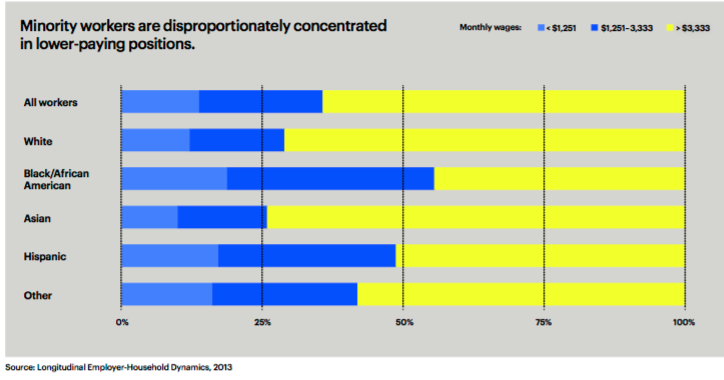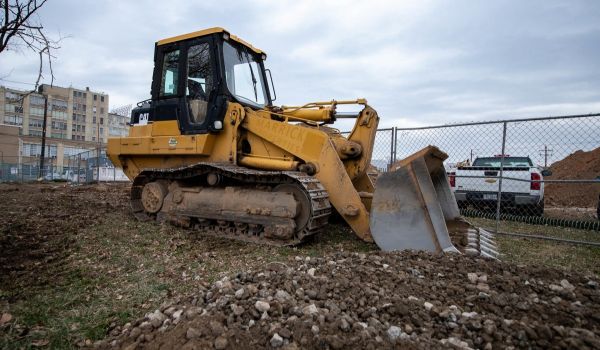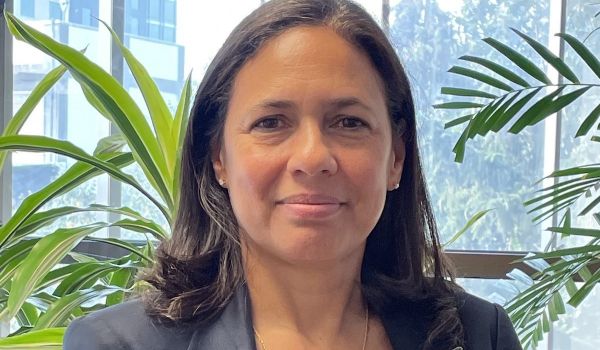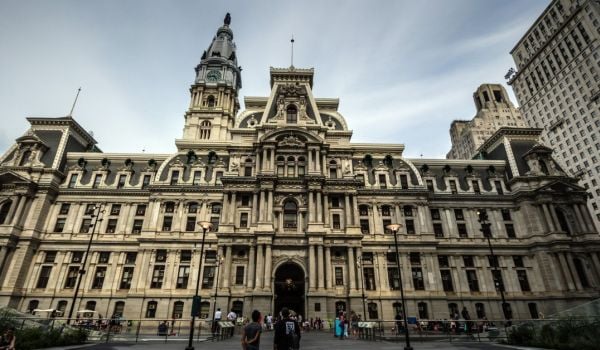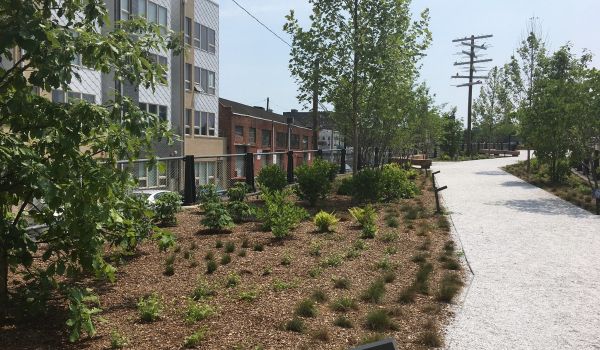Philadelphia’s high-tech “eds and meds” sector has the potential to launch the city into a position of global economic leadership. But so far, that potential hasn’t been well tapped, according to a new report from D.C.-based think tank The Brookings Institution. Developing venture capital and philanthropic sources for local startups and academic research could help tremendously — and the city’s high poverty level and deep racial disparities desperately need to be addressed.
The report, “Connect to Compete,” is the result of an 18-month “audit” on the city’s so-called “innovation district.” It was born from a Brookings-curated “meeting of the minds” with Comcast, which is headquartered in Philadelphia, and prominent anchor institutions Drexel University, Children’s Hospital of Philadelphia and the University of Pennsylvania, among others, in 2015. And it finds ample foundation upon which a top-tier information-sector economy could be built.
“The Philadelphia metropolitan area — with over 2.8 million jobs — has a critical mass of assets that few places can rival,” the report states, pointing specifically to the region’s education and medical sectors. “Research expertise in genetics, therapeutics, clinical trials, and health informatics — together with private-sector strength in pharmaceuticals and an influx of venture capital — have made it a leading life sciences hub. Its research capacity in engineering, automation technology, and computer science is expanding rapidly, while its high-tech and startup community continues to grow and develop.”
Those assets, the report explains, “disproportionately concentrate in University City (UC) and western Center City (CC), areas that have for years been growing toward one another to create a globally relevant innovation district.”
Next City has covered ways that anchor institutions can drive city-level economies, in Detroit and Cleveland. But the potential isn’t enough, as the Brookings report explores.
The sixth-largest metropolitan area in the country, Philadelphia ranks among the top 10 metros based on its total annual amount of public and academic research expenditures. But given its size, the region needs more from these resources than it is currently getting. In fact, the metro ranks behind many of its peers on key innovation and growth measures, including employment share in advanced industries (51st), new firm creation (34th), and total patents (12th). Moreover, its economy is not working for large numbers of residents: the region’s annual job growth is consistently below the national average, and at 26 percent the city bears the ugly distinction of having one the highest rates of poverty among the nation’s large cities.
As in most American cities, look closer at that poverty statistic and you’ll find deep racial disparities. “While 70 percent of [innovation] district residents are predominantly white or foreign-born (owing in part to the large number of international students), upwards of 70 percent of residents in the surrounding neighborhoods are black,” the researchers found. “And within the district, far larger shares of black and Hispanic workers are concentrated in low-wage jobs than are their white counterparts.”
To step up its innovation game, and spread the wealth more equally among all Philadelphia residents, Brookings suggests organizing an “innovation council.” It may sound a little bit like the task force that proverbially kills actual work, but the report points out that currently, no single entity is looking at the city’s economy through this lens.
Though not dealing specifically with “eds and meds,” there is a concurrent effort underway to connect local research and economic engines. A “community reinvestment commission” was recently put before Philadelphia voters, as PlanPhilly reported. “This new commission is the brainchild of City Council President Darrell Clarke, who wants to see better coordination between private, public, nonprofit and organized labor interests in the city,” writes Jake Blumgart. “It would be charged with making recommendations to City Council and the mayor about reinvestment strategies that coordinate and leverage resources across sectors.” The majority of ballots cast favored the creation of the commission.
Brookings, again, is particularly interested in research and medicine, and wants to see more capital leveraged and focused at those sectors:
Given the region’s public and private strengths in the life sciences, its broad clinical care capabilities, its large catchment of patients, and the depth of bio-specimens (which support future scientific discoveries), we recommend that the council focus its initial efforts on creating a Precision Medicine Catalyst Initiative — a central organizing force that has the ability to pool resources and capture the full value of the region’s research and commercialization capacity in gene therapy. Quantifying that value and translating it to potential funders could be an important step going forward.
Beyond capturing the value of such industries, the think tank’s report suggests that the city proactively look the other way, too — toward capital. Noting an absence of local “PayPal millionaires,” high-dollar investors sprinkled more generously throughout Silicon Valley, Seattle, Chicago, and Boston, it recommends launching a separate entrepreneurship initiative to connect startups with funders.
Finally, it recommends the obvious: Hiring more workers from outside the district’s high-income bubble.
“The close proximity of the innovation district and the struggling communities around it represents an immediate opportunity to link low-income residents to the economic growth and revitalization happening just blocks away,” it states.
The full report can be read here.

Rachel Dovey is an award-winning freelance writer and former USC Annenberg fellow living at the northern tip of California’s Bay Area. She writes about infrastructure, water and climate change and has been published by Bust, Wired, Paste, SF Weekly, the East Bay Express and the North Bay Bohemian
Follow Rachel .(JavaScript must be enabled to view this email address)


